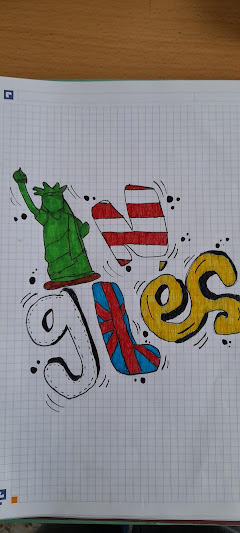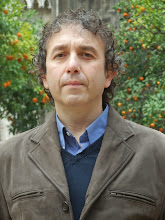miércoles, 22 de abril de 2009
PRESENT PERFECT SIMPLE
PRESENT PERFECT SIMPLE
SUBJECT + HAVE / HAS + VERB-pp + (Complements)
STATEMENT
I have eaten some apples
She has written a good novel
They have walked home early
NEGATION
I have not eaten some apples
She has not written a good novel
They have not walked home early
INTERROGATION
Have I eaten some apples?
Has she written a good novel?
Have they walked home early?
TIME EXPRESSIONS:
• FOR / DURING / SINCE- FOR: A period of time: He has worked as a miner for six years
- DURING: A period of time defined by itself: He has worked as a miner during the autumn
- SINCE: A period of time extending into the present: He has worked as a miner since he left school
• EVER / NEVER- EVER: To express at any time in the past until now:
Interrogative (ALGUNA VEZ): Have you ever been to London?
Negative (NUNCA): I have not ever drink gin
- NEVER: To express at no time (the opposite of ‘ever’):
Affirmative (NUNCA): I have never been to London
• ALREADY / YET- ALREADY:
Affirmative (YA): They have already finished
- YET:
Interrogative (YA): Have you finished yet?
Negative (AÚN / TODAVÍA)): He has not finished his meal yet
• JUST
To express a recently completed action:
- JUST (ACABAR DE): The children have just come from school
USES:
• A past that is in some way connected to the present: I have walked for two hours
• Actions happened in an indefinite past time, where those actions are more important than the time when they happened: The workers have finished the house
• Actions that began in the past and are not yet finished: I have lived in this house all my life
• Actions in the past that may be repeated in the future: He has built many houses
PRESENT SIMPLE PERFECT versus PAST SIMPLE
PRESENT SIMPLE PERFECT:
- Past action with no mention of time: I have been to London many times
- Past action with visible effect in the present: Volunteers have cleaned the beach
PAST SIMPLE:
- Past action with mention of time: I went to London last summer
- Past action with no visible effect in the present: I went to the beach last summer


